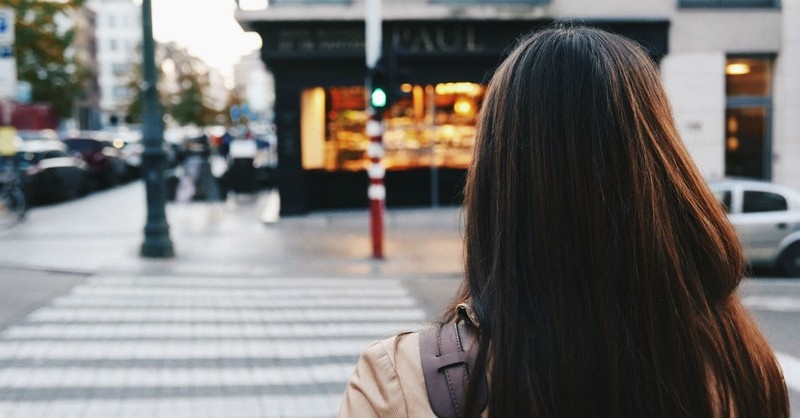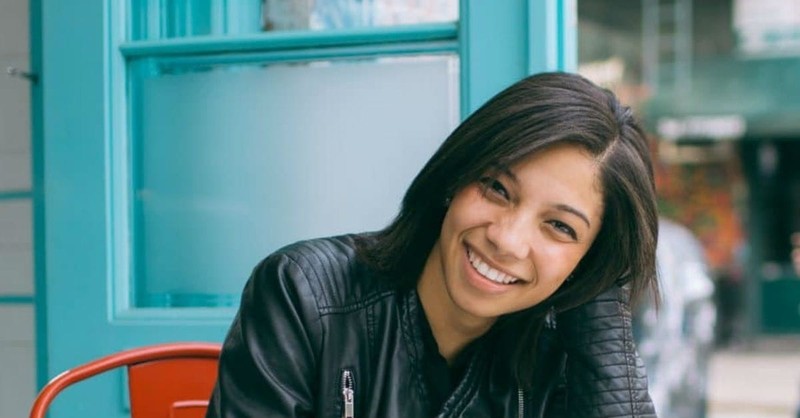
When we pulled away from our home in Salt Lake City, I mourned the mountains. I touched the walls of a 100-year-old home we’d called our own then hopped in our van to move west, back home to the southern California suburbs. We had made a space for ourselves in the city — we would walk to the grocery store and to the park, wave to neighbors from our front porch, ski with friends and university students, and we’d worship with other committed believers who were all from elsewhere too. What would it look like to go back home?
In our sixteen years of marriage, my husband and I have moved eight times, including a move across state lines and overseas. For two people who grew up in the same houses that we were each brought to from the hospital, it’s odd that we grew used to being nomadic. We were used to what initially felt like the glitz and glamour of getting to know a new gorgeous landscape, new cities, and neighborhoods.
But while my husband was excited about the next challenge, I was mourning my losses: a best friend, weather with seasons, and a place where we solidly knew who we were and what we were doing. It would take courage to stay put in our hometown.
Photo Credit: Unsplash/Matheus Ferrero

"In the midst of the unknown about church or relationships, we pressed on."
When we arrived, any excitement turned into anxiety: When would our things arrive in the moving van? Would we meet friends? Would anyone want to come to a church that didn’t exist yet? Would I survive the heat? Would we be lonely?
We threw ourselves into our new place with a flourish. We would run outside to meet neighbors when kids were playing. We threw impromptu barbecues in the alley between homes. We made patriotic milkshakes for the 4thof July and handed them out to neighbors. But we also felt a bit off — like we’d been plopped down into a new culture and were trying to figure out how things worked here, all while trying to start a new church and get our kids settled. In the midst of the unknown about church or relationships, we pressed on. We invited people over, we took the first step, we did small things like say hello.
Photo Credit: Unsplash/Bibarys Ibatolla

Committing to Staying Put
That first year, staying put looked like putting my two youngest kids in the double stroller and walking to and from their siblings’ school day after day. It meant that I could find my place as I walked my place. Each day, I’d trudge up the hill with the sun on my back and be ready to pick up my kids as they would run and tell me about their new friends and what a new school was like.
We’d come home, tired and hungry, and do the mundane tasks like chores, homework, sports practices, and making dinner. In the miles walked, I’d learned that for better or worse, this was my place. This was my place with the neatly manicured lawns and suburban walking paths that circled the neighborhood. This was the place where families went because it was “good for the kids,” and yet everyone was so busy that we didn’t have time for real community.
Photo Credit: Max Felner

"I would opt for a few walks alone and wrestle with God..."
It took courage to stay put — to keep pushing the stroller, to keep reaching out to neighbors, and to not run for the hills on the bad days, like I wanted to many times.
I would opt for a few walks alone and wrestle with God about where we were — how it didn’t fit my sensibilities. We all wanted to belong, to feel special and loved, and to find our place. My neighbors just tended to look for it in shiny suburban packages like bigger houses, school ratings, and their children’s academic or athletic accolades. And I told God that I hated that at some level, I craved the same things too.
Photo Credit: Unsplash/Veronica Gomez Ibarra

"So I kept walking."
Courage to stay put looked like confronting my snobbishness and embracing my smallness. It meant continuing to enact in my body the habits that would help to make my suburban subdivision a home and a refuge for worn out people who need Jesus. So I kept walking. We still walk to school, several years after that first year. And I still pray with my hands outstretched that God would loosen the hold of affluence and comfort on my neighborhood so that the sweet glory of the gospel would be good news.
Photo Credit: Unsplash

Letting Go
Courage to stay put whether it’s in your marriage, your career, your place, or in a difficult moment means we relinquish all that could ideally be true of us and this moment in time. It means that we say goodbye to what was, knowing that Christ walks beside us.
For me, I have prayed continually that Jesus would be sweeter than my circumstances – no matter if it was a good day or bad day, if I felt satisfied or lonely, if I was respected or slandered. Sometimes I savor the sweetness, while other times I depend on his Word to remember that he is unchangeable in goodness and glory, and in his wisdom, justice, and truth (to borrow words from The New City Catechism). Staying put might look like simply being obedient to God and believing who he says he is, no matter your feelings.
Photo Credit: Unsplash/Nick Grant

"...we also have lean times where we are more circumstantially dependent on God alone."
As we walk in obedience and make this a habit in our bodies, we’ll come to welcome the letting go as a gift. Not because God is some cosmic kill-joy, but because he is good. And like a mother helps her child detox from too much screen time or too much sugar, it’s important that we also have lean times where we are more circumstantially dependent on God alone.
We press in in those times. We stay put in the discomfort of negative emotions because we have a God who has promised to never leave us or forsake us. We have a God who entered into our human brokenness to win us for himself and this means that we have a holy and unchangeable God who is kind.
Photo Credit: Unsplash

"...character is always cultivated in quiet moments and quiet spaces."
Knowing this, experiencing this, and making a habit of rehearsing the attributes of our good God helps us to slowly begin to let go. After a few years (I’m a slow learner), I reckoned with the fact that yes, I’m here. We’re staying put. I traded all my worldwide dreams for a simple, ordinary life. As much as I think the larger world scene might be my jam, I know that character is always cultivated in quiet moments and quiet spaces.
So I press in. I stay, and I ask for eyes to find holy in the everyday.
Photo Credit: Unsplash/Fabio Spinelli

Looking Ahead
The good news of the gospel never leaves us where it finds us — with a backward glance at all we’ve lost. That is the work of grief and lament and it is an important work we often want to hurry. But when we grieve over what we’ve lost, we also have the opportunity to move forward.
Just this past summer our church plant — the one we moved to the suburbs to begin — held our third year of Kids Camp. We had nearly 100 kids, and as I looked around the room, I realized these people were my family. The pastor and worship director who were doing silly skits. The energetic mother, with a child on one hip, who was corralling kids during singing. The man who took off work to teach kids the Bible. The church newcomers who met friends as they served kids snacks and helped out with games.
Had we not committed to staying put, I would not be on mission with these people.
Design Credit: Rachel Dawson

"...the mission of Jesus is that all people will know, love and worship God."
God is calling a people to himself. Often the ways we share the good news feel ordinary, and we can find ourselves kicking and screaming when God calls us to be a part of it. Yet, we know that the mission of Jesus is that all people will know, love and worship God. May we do our small part to stay put so that we will have the courage to see how sweet our Savior is and how he can work in and despite us.
Ashley Hales holds a PhD in English from the University of Edinburgh, Scotland. She’s a writer, speaker, the wife to a church planter in the southern California suburbs and mother to 4. Her writing has been featured in such places as The Gospel Coalition, Books & Culture, and Christianity Today. Her first book is Finding Holy in the Suburbs: Living Faithfully in the Land of Too Much (IVP). Connect with Ashley at aahales.com or on social media at @aahales.
This article is part of our courage theme for the month of August on iBelieve. What is courage? Usually, we associate courage with heroic and brave deeds. But this definition fails to recognize the inner strength and level of commitment required for us to actually speak honestly and openly about who we are and about our experiences -- good and bad. We believe this kind of “ordinary courage” is what God calls us to live into every day of our lives.
Check back here throughout August for a new story of courage as our writers tackle what it means to be faithful, courageous women in a culture that values comfort and conformity.
Photo Credit: Pexels
Banner Design Credit: Rachel Dawson
Originally published Monday, 27 August 2018.









